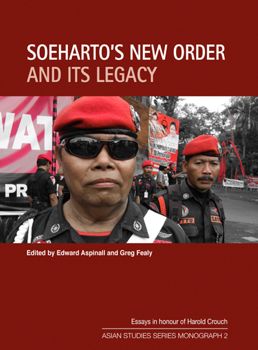Two recent edited collections on Indonesian politics assess its democratic merits
David Reeve
 |
These edited collections on contemporary Indonesian politics are each interesting and useful by themselves, but are much more so when read together. There are stimulating comparisons as different scholars work similar materials to different conclusions. In both volumes there is also a strong sense of writers returning to familiar themes (Jenkins on Suharto, Barton on Gus Dur, Jones on Islamic radicalism, Tomsa on parties and so on), but there is still enough here that is lively and informative.
The Return to Constitutional Democracy in Indonesia (edited by Reuter) is a slim volume of eight essays by seven scholars from various Australian universities, number 30 in the Annual Indonesian Lecture Series. The essays are around 13 pages, enough for a substantial contribution. Soeharto’s New Order and its Legacy: Essays in Honour of Harold Crouch (edited by Aspinall and Fealy) include papers from a 2005 conference, and is about twice as long with 12 longer essays, a short preface honouring Harold Crouch, and a substantial introduction from Edward Aspinall and Greg Fealy.of
Presidents
Both books argue that Habibie turned out, surprisingly, to be the most reforming president of the four after Suharto. In the Aspinall and Fealy collection Dewi Fortuna Anwar gives an insider’s account, emphasising that Habibie had spent much of his youth and young adulthood in Germany, and had had significant exposure to Western systems and











